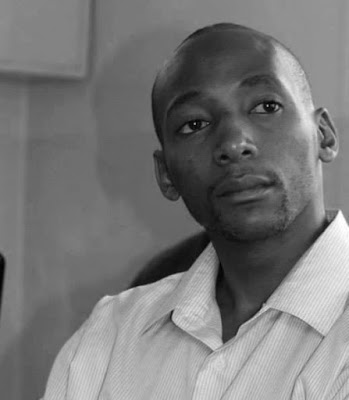On Monday, October 12, 2015, motivational speaker and writer Pepe Minambo launched his tenth book, Beyond Limits, in Nairobi. Never before have I ever seen such a long queue for a book launch. I had to check with another attendee whether I was at the right event!
Well-known in Kenya for his talks and books, Pepe was born in the Democratic Republic of Congo and raised in less-than-enviable circumstances that included an absentee father. But he was determined not to allow his past dictate his future. His appetite for life is impressive and his positive attitude infectious. He now teaches other people how to embrace a positive outlook and how to speak in public.

His previous books include Be Inspired Before You Expire and The Game Changer. Regardless of whether you like motivational material or not, you’ve got to admire his business acumen when it comes to books. Entrance to the Beyond Limits launch was free but a host at the event said that they were looking to have sold 10,000 copies at the bottom of the night. The book, a paperback, was retailing at Kshs 500 (US$5).
I don’t know if they reached their goal but a Member of Parliament in the audience did pledge to buy 6,000 copies to ‘motivate’ his constituents. There were also quite a number of attendees carrying the black-jacketed book around. One mzee said he had bought three copies: for himself, his daughter, and his girlfriend (The idea of a grandfather-esque geezer having a ‘girlfriend’ made the audience chuckle.) So, knowing that Pepe sold at least 6,000 copies at Kshs 500, he made at least Kshs 3,000,000 (US$30,000) that day. And if they reached their target of 10,000 sales, then that’s Kshs 5,000,000. Some writers will scoff at this commercialism, which brings me to my first point:
‘The reality is that as artists, you are a business. You are a brand. And marketing is as much a part of selling toothpaste as it is selling art…To make money in art is not “selling out” and, unfortunately, many artists feel that way.’ — Adrian Salamunovic, co-founder of DNA 11/Canvas Pop
Pepe is a terrific marketer. To promote the event, he partnered with The Nairobian, a newspaper he writes a column for. The Nairobian is owned by Standard Media Group which spans print and electronic media. This resulted in plenty of free publicity. The ‘buzz’ around the event, book and author no doubt increased its demand in the bookstores since no bookseller likes to be the one without an in-demand title. Success breeds success. Having spoken in numerous institutions (from schools to prisons) across the country and beyond our borders, Pepe utilised his contacts to marshal a mammoth crowd.
The pre-launch promotion made it clear this was going to be a mega-event, perhaps the greatest of the kind locally. That kind of hype roped in literary stakeholders such as myself. As we streamed into KICC’s Tsavo Ballroom where the event was held, our contact details were harvested. We also received brochures for Pepe’s Motivational Speaking Academy, where a course goes for Kshs 40,000 per student. Again, some writers will balk. One thing I know from experience is that most ‘artists’ are averse to marketing/commerce. But the reality is unless you have an agent who does it for you, you are – de facto – your own agent and will have to promote your work, or yourself as a brand. I could be wrong, but there’s no way around it.
Sure, you could get lucky and win a major award or be published by an entity that knows what it’s doing but, for creative writers in Kenya, that’s a long shot. You would be surprised how many Kenyans have self-published books no-one knows about. No one. They do zero marketing, and they’re not about to start. But how will they get any recognition if they don’t complete the book chain (writing, editing, manufacture, promotion, sales, distribution etc.)? If you’re self-published, then you have no choice but to handle every aspect of the business yourself. Mainstream publishers do a better job of promotion although there are some that make me wonder why they accept manuscripts if they will not later promote the book or the author through a book launch, media release, posters, sales drive etc. This brings me to my second point:
‘Artists often have a hard time getting their art work out there and appreciated. And it’s not because it’s not good work. It could be amazing work. But it’s because you don’t have the marketing/communication skills to let people know what you are doing.’ — Evan Carmichael, entrepreneurial advisor.
I am not sure why most writers are averse to marketing but the excuses are endless: ‘I don’t have time’, ‘It’s not my thing’, ‘It’s beneath me’, ‘I’m an introvert’, ‘I am not a sales person’ etc. Over the last 10 or more years, I have sold both physical books and e-books and I can assure you that, in Africa, at least, books are a hard sell. But it doesn’t help if the author themself is unwilling promote their work! That’s why one writer will be starving while someone like Pepe is laughing all the way to the bank (literally, he’s always jovial). Reacting to an aspiring author who was refusing to take a sales course, bestselling business author Robert Kiyosaki (of Rich Dad, Poor Dad fame) once said, ‘There’s a difference between a bestselling author and a best writing author.’
But is refusing to promote your brand or book reasonable? Aren’t you always marketing yourself, consciously or subconsciously, anyway? You may as well take charge of it and throw in a strategy! I am sure you know of someone in your workplace or neighbourhood who seems to get by, not by doing a good job but by marketing themselves very impressively. In another life, I was an IT guy. One time, I was working for a Dutch IT company in Nairobi and a certain lady joined us. She was the classic go-getter type: extroverted, talked a lot, sharp dresser. She came from a super-rich family and didn’t need the job so she didn’t work hard at it, and even once tried to get us to go on strike over a single minor delay in our salaries. Irony of ironies, when a senior position opened up at the same company, she got the promotion and entered the six-figure income bracket while the rest of us were left chained to our workstations! She really knew how to market herself. Economics expert Philip Kotler, author of Marketing 3.0, said:
‘All of us do marketing…Did you ever compete for a job when you knew there were other applicants? Didn’t you dress up as well as you could and even prepare what you were going to say and so on?…Did you compete for a desirable apartment which was scarce?…Or a member of the opposite sex if you wanted to court someone?…We are human animals who know how to make an impression and market ourselves, to some extent.’
This leads me to my third and final point:
‘The fact is if there wasn’t marketing, the world wouldn’t really go around. You wouldn’t be able to get a girlfriend because, essentially, you market yourself to this girl to get her. You wouldn’t get friends because you, essentially, market yourself to friends to get them to be friends with you…It’s the advertising first and then being good at what you do.’ – Marshall Wayne, film maker.
I am sure some people don’t want to hear that but the purpose of this article is to give you the lie of the land. I wish it were the other way around. I wish the best person in any given field would automatically go farthest. I wish the sky were always blue and all of God’s children had shoes. But that’s just not the reality. The truth is, in business, it’s the marketing first and then being good at what you do.
I said that to an aspiring author at an outdoor literary event and he snapped his head away from me like a wind vane. He couldn’t take it. He’s all about the art. He’s a ‘msanii’. He’s an ‘artist’. He’s also unknown.
As writers, we are not special. To get ahead, we will have to do everything other people do: if they market their products, we must do the same; if they invest time and money in their enterprises, we must do the same; if they lobby the government until they get favourable national policies (like Kenyan musicians recently did), then we must do the same. And if you catch some disgruntled, starry-eyed, scribblers complaining about how ‘motivational writers are minting money’, ‘a certain poet is getting all the spoken word gigs’, ‘Ngũgi wa Thiong’o, Wole Soyinka and a few other writers have dominated the literary scene for too long’, ‘so-and-so wins awards back-to-back and he/she is not even that good’ etc., then tell them this:
‘You can have the greatest product or service in the world but if nobody knows about it, your business won’t last very long. Whatever market you’re selling to is likely full of competitors. Even if you have a better quality product or service, your competition can get more business than you if they promote themselves properly.’– Evan Carmichael, business guru.
- YouTube video titled ‘The Wealthy Artist: 6 Myths and 6 Tips on Marketing your Art’. Published on Feb 10, 2015. URL: https://www.youtube.com/watch?v=51CrmgpZtvg
- ‘How to Promote Your Book Without Spending Money’ (YouTube video by Evan Carmichael.) Published on Sep 24, 2014. URL: https://www.youtube.com/watch?v=cDHWbGBf4C4
- From a lecture titled ‘Marketing’, delivered by Philip Kotler at Chicago Humanities Festival. YouTube video published on Nov 26, 2012.
- ‘Garth Brooks and James Patterson Used Marketing to Become Famous’ (YouTube video). Published on Jan 18, 2011. URL: https://www.youtube.com/watch?v=YrsOrCWkGCI

Alex Nderitu
Alex Nderitu is a Kenyan poet, playwright and novelist. His first book, ‘When the Whirlwind Passes’ has the distinction of being Africa’s first digital novel. Some of his writings have been translated into Swedish, Japanese, Chinese, Arabic and Swahili. In 2014, his poem ‘Someone in Africa Loves You’ represented Kenyan literature in Poetry Postcards distributed during the 2014 Commonwealth Games in Glasgow, Scotland. His fiction is available worldwide via the Worldreader app and devices. In 2017, he was named by Business Daily newspaper as one of Kenya’s ‘Top 40 Under 40 Men’. Nderitu is also the Deputy Secretary-General of Kenyan PEN and is the Kenyan Editor of the international theatre news portal, TheTheatreTimes.com
This entry appeared in The Limits Issue






